ICCFASD 2022 Invited Speakers
2022 PUBLIC MEETING OF THE INTERAGENCY COORDINATING COMMITTEE
ON FETAL ALCOHOL SPECTRUM DISORDERS (ICCFASD)
Friday, April 1, 2022
Special Panel
A FASD Changemakers’ Lay of the Land Survey: Equality vs Equity – What 468 Adults with FASD Want You to Know
CJ Lutke, Myles Himmelreich, Katrina Griffin, Justin Mitchell, Anique Lutke, Emily Hargrove
Moderator: Jan Lutke
The Adult Leadership Committee (ALC) of FASD Changemakers is a renowned group of citizen researchers and experts who each has FASD. It is made up of CJ Lutke, Myles Himmelreich, Katrina Griffin, Justin Mitchell, Anique Lutke and Emily Hargrove, a group who have experienced all the events commonly associated with FASD but have learned how to overcome obstacles, maximize potential and re-define success. They use their combined lived experience to work together as consultants, advisors, trainers, presenters, mentors, group moderators, bloggers, and as various university research project team members. They develop and lead their own survey research, which has received wide interest by institutions and is currently being used to help focus research directions and questions.
In this panel, the ALC will be presenting results from the second comprehensive “Lay of the Land” survey they have developed, designed, and conducted. Their first “Lay of the Land” survey on the health of 500+ adults with FASD was done in 2017 and published in 2020 by Routledge. In this survey, more than 300 questions - spanning many areas of life - were asked of adults with FASD. While the current study was designed to learn more about the quality of life of those with FASD who responded, responses revealed significant equity disparities to be the critical focus. This presentation will be centered around the lived experience of 468 older teens and adults with diagnosed FASD and while the survey itself did not address COVID-19, the ALC will provide observations on the effects of the COVID-19 pandemic based on their interactions with adults with FASD over the past 18 months. This is the first survey on this issue directly of those with FASD and is extensive and thorough. Its findings provide urgently needed information for professionals, service providers, agencies, researchers, and members of government; for families, and for individuals with FASD themselves who have said these questions should – and need to be - asked.
Invited Speakers
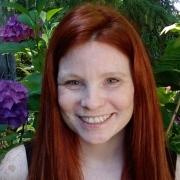
CJ Lutke, who is 37, was diagnosed with full FAS as an infant and adopted by her foster family at age five, along with an older brother and sister who also have FASD. She is a well-known speaker on FASD, having presented at and participated in many conferences, seminars, training sessions and other events over 20 years. CJ actively provides advice and consultation and participates as an advisor to research projects. She has just been appointed to an Access to Family Justice Committee chaired by the Chief Justice of the Supreme Court of British Columbia. She is the author of an on-line blog that is hosted by NOFASD Australia and followed globally. As well, CJ has been a member of the Adult Leadership Committee (ALC) of FASD Changemakers for 15 years. She was the co-lead on their first ground-breaking Lay of the Land Survey on the health and physical issues of adults with FASD that has received wide international attention and was published in 2020. CJ is currently the lead author on their second Lay of the Land Survey on the Quality of Life of Adults with FASD, preliminary results which were released in March of 2021. CJ believes that those with FASD must challenge perceptions about possibilities and outcomes and change the future. Her goal is to help others with FASD find their voice and to understand that we are greater when we work together.
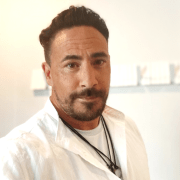
Myles Himmelreich, who is 43, was diagnosed with FASD at 22. He grew up in an adoptive family. He is a well-known motivational speaker on living with FASD and has presented at many conferences over the last 15 years. He also provides consultation and training to improve capacity to understand and create inclusion for those with FASD and has run mentoring groups. He has been a member of the ALC of FASD Changemakers for 15 years. Myles was co-lead on the ALC Changemakers first ground-breaking Lay of the Land Survey on the health of adults with FASD and is a member of the team on their second Lay of the Land Survey on Quality of Life. He is a system changer and advocate, with a passion for creating meaningful inclusion for those with FASD, including in his work with the Representative for Children and Youth for the Province of British Columbia, Canada. His goal is to help audiences change the way they view FASD, educate society to build environments for success, and empower those with it to know and find their purpose.
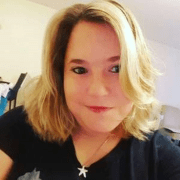
Katrina (Kat) Griffin, who is 32, was diagnosed with full FAS in infancy and raised in foster care. She is a well-known speaker on FASD, having presented at many conferences, seminars and events over the past 10 years. She was also part of a team of teens and adults with FASD providing training for second year medical students at the University of British Columbia for over 10 years. She also acts as an advisor to research projects. She has just been appointed to an Access to Family Justice Committee chaired by the Chief Justice of the Supreme Court of British Columbia. Kat has been a member of the ALC of FASD Changemakers for 10 years and has actively worked on their second Lay of the Land Survey on Quality of Life. She is employed as the FASD mentor for the Asante FASD Diagnostic Centre in British Columbia. Kat’s goal is to help others with FASD find their place and to participate meaningfully as members of society.
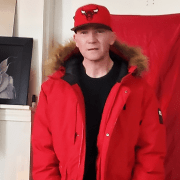
Justin Mitchell, who is 40 years old, was finally diagnosed with full FAS when he was 20 years old. He grew up in multiple foster homes, group homes and as a youth, lived on the streets. As an adult he has had several periods of homelessness. Justin has a criminal record as an adult with several periods of incarceration and has battled with addiction for more than 20 years. Fifteen years ago, a FASD mental health therapist from a post release prison program brought Justin to the Vancouver FASD research conference in which teens and adults with FASD were actively involved. That marked the start of a turning point in his life with the beginning of understanding his disability, increasing periods of sobriety and a group of peers and adults who provided continuing non-judgmental acceptance, support, understanding and inclusion. Over the years he worked to become a conference speaker/presenter and a leader and role model for those with the most difficulties in the FASD adult conference stream. As well, he has been involved in research projects. Although his life continues to be a series of on-going struggles, his contributions are highly valued. Seven years ago, he became a member of the ALC of FASD Changemakers. Justin brings his extensive experience with trauma and the tough places he has been to the group. He was a key developer, especially in critical areas, of the Lay of the Land Quality of Life Survey. Justin’s goal is to challenge negative beliefs and stereotypes and to help those with FASD and similar backgrounds work – and continue to work - on overcoming the past and to see a better future in which they have a place.
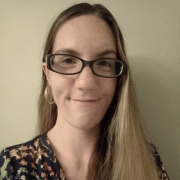
Anique Lutke, who is 33, was diagnosed with FASD at 11. She grew up in birth and foster homes and was adopted at 14. She spent time teaching second year medical students as a teenager and is the moderator of the largest global on-line support group for adults with FASD. She has been a member of the ALC of FASD Changemakers for five years and has actively participated in their second Lay of the Land Survey on Quality of Life. As well, she has spoken at several conferences and is participating as an advisor to a FASD research project. Anique’s goal is to help those with FASD who have experienced trauma become the whole people that they are.

Emily Hargrove, who is 30, was diagnosed with full FAS at the age of one at the Vanderbilt Children’s Hospital Center for Child Development. She grew up in an adoptive family and is now married and the mother of a new baby, living in Kentucky where she and her husband are student pastors at Relevant Church. Emily has a bachelor’s degree in psychology and counselling and is working on concurrent masters and PhD with a planned dissertation on FASD research. She has been a member of the ALC of FASD Changemakers for seven years and was one of the co-authors of the first Lay of the Land Survey on the Health issues of adults with FASD, published in 2020. Emily is also the is the Community Education and Advocacy Specialist at the Papillion Center for Fetal Alcohol Spectrum Disorders (FASDs), the National Organization of Fetal Alcohol Syndrome’s Kentucky Affiliate and was a founding member of the first national self-advocacy network, Self-Advocates with an FASD in Action (SAFA). She is a former expert panel member for SAMHSA’s FASD Center for Excellence, co-authoring treatment and intervention protocols implemented throughout the United States. As a member of the Adult Leadership Committee (ALC) of FASD Changemakers, Emily has the honor of partnering with them, with a focus of strengthening autobiographical voices of adults with an FASD in research.
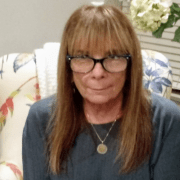
Jan Lutke was the co-chair of the former National Advisory Committee on FASD to Health Canada, Government of Canada, for five years, appointed by the Federal Minister of Health, and chaired its sub-committee on Quality of Life. She has been a member of many additional provincial and national advisory committees with respect to FASD and was invited to present at the inaugural WHO invitation only Forum on Alcohol, Drugs and Addictive Behaviours in 2019 and attended as an invited FASD expert in 2021. She was the Clinical Research Manager for the Canada FASD Research Network (CanFASD) for ten years until her ‘official’ retirement. She developed, guided, and chaired the annual international FASD research and adult conferences held in Vancouver for the last 34 years and developed and manages the FASD Changemakers and their work. She is a published author on many papers, including the Canadian FASD Diagnostic Guidelines, and book chapters for the University of Washington and University of Alaska Presses, and has written much material on FASD that is widely used. She and her late husband adopted 22 children from foster care, 16 of whom have a diagnosis of FASD and now range in age from 32 to 50.

